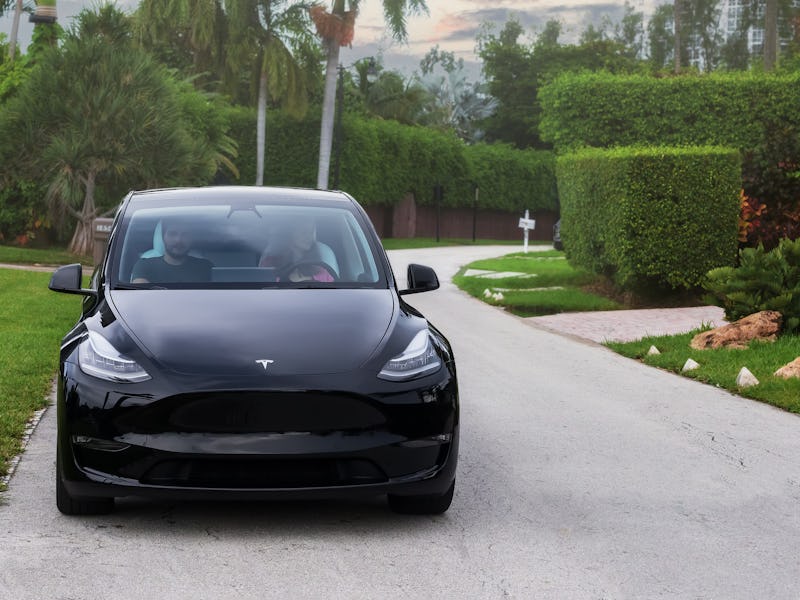Elon Musk’s car company is back with another case of overpromising and underdelivering.


Turns out Tesla’s self-driving cars don’t stop at stop signs
Last week, Elon Musk promised Tesla shareholders that his company would achieve “full-self-driving safer than a human” by the end of 2022. This week, 54,000 Tesla vehicles are being recalled because the company’s self-driving technology can’t follow simple traffic signs. Oops!
Here’s the situation, which is both self-inflicted and completely unnecessary: Tesla’s “Full Self-Driving” technology includes a feature called “rolling stop,” which allows some of its vehicles to simply slow down for a stop sign at intersections with all-way stops. The feature slows the car down to 5.6 miles per hour but keeps it from coming to a complete stop. While this is a decent simulation of how humans probably drive, it’s actually against the law in most states. And it’s kinda silly for an automated system that is supposed to be safer than a human to replicate the unsafe practices of human drivers. So now, Tesla has to recall its cars to fix it.
In meetings with the National Highway Traffic Safety Administration, Telsa swore that the rolling stop feature was safe because it only activated when there were no cars, pedestrians, or bicyclists were detected. That’s reasonable enough. Then you remember that Teslas had a problem where Autopilot would cause the cars to run into parked or stopped emergency vehicles, or you watch this video where a Tesla straight-up plows through a cardboard cutout of a child, and you go, “Okay, well, maybe if your car can’t reliably detect the things that would disable a ‘rolling stop’ then you should just not have the feature at all.”
Rolling stops will be removed via an over-the-internet software update, so most people won’t have to take any action for the change to go into effect. That update is expected to come out later this month. So far, there haven’t been any reported accidents or injuries that have occurred due to the rolling stop feature, but it’s probably best to not wait for that to happen, either.
In the grand scheme of things, this is a pretty small setback for Tesla, which has had a number of significant issues with its autonomous driving features. But it’s made worse by the fact that the company’s CEO can’t seem to stop overpromising and underdelivering when it comes to self-driving vehicles. During an earnings call last month, Musk said that he would be “shocked” if the company didn’t achieve “full-self driving” that is safer than the average human driver by the end of this year. “Being safer than a human is a low standard, not a high standard. People are often distracted, tired, texting,” Musk said. “It’s remarkable that we don’t have more accidents."
If that sounds familiar, it’s because Musk says this shit all the time. In 2015, Musk claimed that “full autonomy” would be achieved within three years. In 2016, he said we were just two years away from full self-driving. That deadline came and passed with nothing to show for it, but Musk kept making the claim. In 2019, he said he was “certain” autonomy would be achieved that year. Nope. He said there would be 1 million self-driving cars on the road in 2020. There are not. By 2021, he was able to admit that self-driving technology is hard, but still claimed it was coming soon. Let’s take a wild guess at how that latest claim will end up.